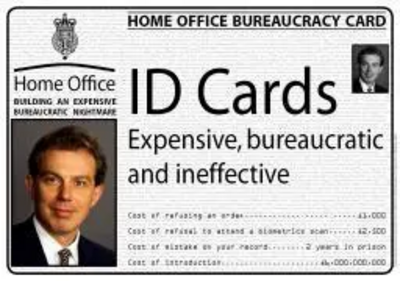Government is covering up the facts about ID cards

The Freedom of Information watchdog ordered the Department of Work and Pensions to publish its findings about how the cards could fight ID fraud, the department has decided to appeal against the ruling. Liberal Democrat Home Affairs spokesman Nick Clegg said "The public has a right to know if the billions of pounds the government is committing to this massive project will be money well spent. It is a measure of the government's failure to justify ID cards that during the passage of the bill they never once released a full estimate of its costs and impact."
Three feasibility reports drawn up by Department of Work and Pensions (DWP) officials examined the potential impact on identity fraud - one of the key reasons ministers have used to justify the cards. They also looked at any possible risks the cards could pose to the department's work.
Liberal Democrat MP Mark Oaten asked for a copy of the reports - with sensitive information removed - when he was the party's home affairs spokesman in 2004. He was told that making them public could make it harder to get value for money when the government handed out contracts to firms to set up the scheme but the freedom of information watchdog, Information Commissioner Richard Thomas, ruled that the papers should be published. He said, "There is clearly a strong public interest in the public knowing whether the introduction of identity cards will bring benefits to the DWP, and to other government departments, and if so what those benefits will be". The watchdog has examined the reports and says he can see no information which would put the government's work at risk."
